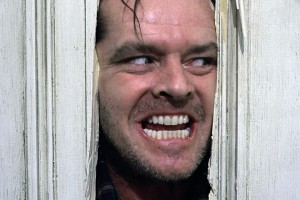 Leaders of all stripes—corporate, volunteer, even presidents of the United States—often exhibit symptoms of psychopathy. So where do we draw the line? When is psychopathy criminal, and when is it seen as “bold leadership”? Would you receive a diagnosis of psychopathy, and what would that really say about you?
Leaders of all stripes—corporate, volunteer, even presidents of the United States—often exhibit symptoms of psychopathy. So where do we draw the line? When is psychopathy criminal, and when is it seen as “bold leadership”? Would you receive a diagnosis of psychopathy, and what would that really say about you?
Robert Hare’s Psychopathy Checklist-Revised (PCL-R, 2nd ed.) says that psychopathy consists of the following traits:
- Interpersonal or affective defects (e.g., glibness or superficial charm, grandiose feelings of self-worth, conning or manipulative behavior, lack of remorse or guilt, shallow affects, callousness or lack of empathy)
- Social deviance and antisocial behavior (irresponsibility, parasitic lifestyle, impulsivity, and unstable relationships, criminal versatility)
- Other attributes
However, this checklist seems intended only for the criminal population. Others define psychopathy a bit differently.
“An easy way to think about it is as a combination of physical and social fearlessness,” says Scott Lilienfeld, professor of psychology at Emory University and author of a study on past U.S. presidents. “People high in boldness don’t have a lot of apprehension about either physical or social things that would scare the rest of us.”
In other words, they don’t march to the same Knower/Judger rules. They stand out.
According to Lilienfeld’s research, fearless dominance, which is linked to less social and physical apprehensiveness, boosts leadership, crisis management, persuasiveness, and congressional relations.
Theodore Roosevelt (who actually won the Nobel Peace Prize in 1906) is regarded as one of the most influential U.S. leaders. He ranked highest for this type of personality, followed by John F. Kennedy, Franklin D. Roosevelt, and Ronald Reagan.
Then came Rutherford Hayes, Zachary Taylor, Bill Clinton, Martin Van Buren, Andrew Jackson, and George W. Bush.
Fearless and dominant people are often a paradoxical mix of charm and nastiness. Cool and calm under pressure, they are not easily rattled. They lack the anticipatory anxiety most people have and are not concerned about taking dangerous actions. They are usually intelligent and wealthy, and they relish directing other people and bask in their admiration.
Scientists estimate that 15–25 percent of men and 7–15 percent of women in U.S. prisons display psychopathic behaviors. An estimated one percent of the general population could be described as psychopathic. Surprisingly, many who fall into that bracket might lead perfectly conventional lives as doctors, scientists, and company CEOs.
Traditionally psychopathy has been measured as a combination of lack of empathy and willingness to break rules. When you’re very high on both scales, society would probably benefit if you lost your Second Amendment rights.
“People think [psychopaths] are just callous and without fear, but there is definitely something more going on,” says Joseph Newman, a University of Wisconsin researcher and the preeminent American scientist focusing on psychopathy. “When emotions are their primary focus, we’ve seen that psychopathic individuals show a normal (emotional) response. But when focused on something else, they become insensitive to emotions entirely.”
For those readers familiar with the DISC profile, you’ll recognize this as the task-oriented mindset of high Dominants (Ds) and high Compliants (Cs).
Sound like a laser-focused executive? Perhaps a talented surgeon specializing in high-risk procedures? Maybe even rally co-drivers? When I’m focused on my job in the right seat, I have no time for fear, and have been known to continue reading course notes some time after the car has settled on its side or against a tree.
It seems that we are not either psychopathic or non-psychopathic, but rather fall somewhere on the spectrum. Executives, and other effective leaders, by my observation, are lower on the “empathy” scale, but remain fairly compliant on the “rule-breaking” scale. More DISC “D” than “C.”
I’ve written in the past about the role fear plays in holding us back and how predicting negative outcomes through some creative logic keeps us from pulling the trigger on something. Well, maybe the reason that I’m less fearful than you is that I’m more of a psychopath than you.
Want to find out where you stand? Try your own personal psychopathy assessment….click Psychopath.



